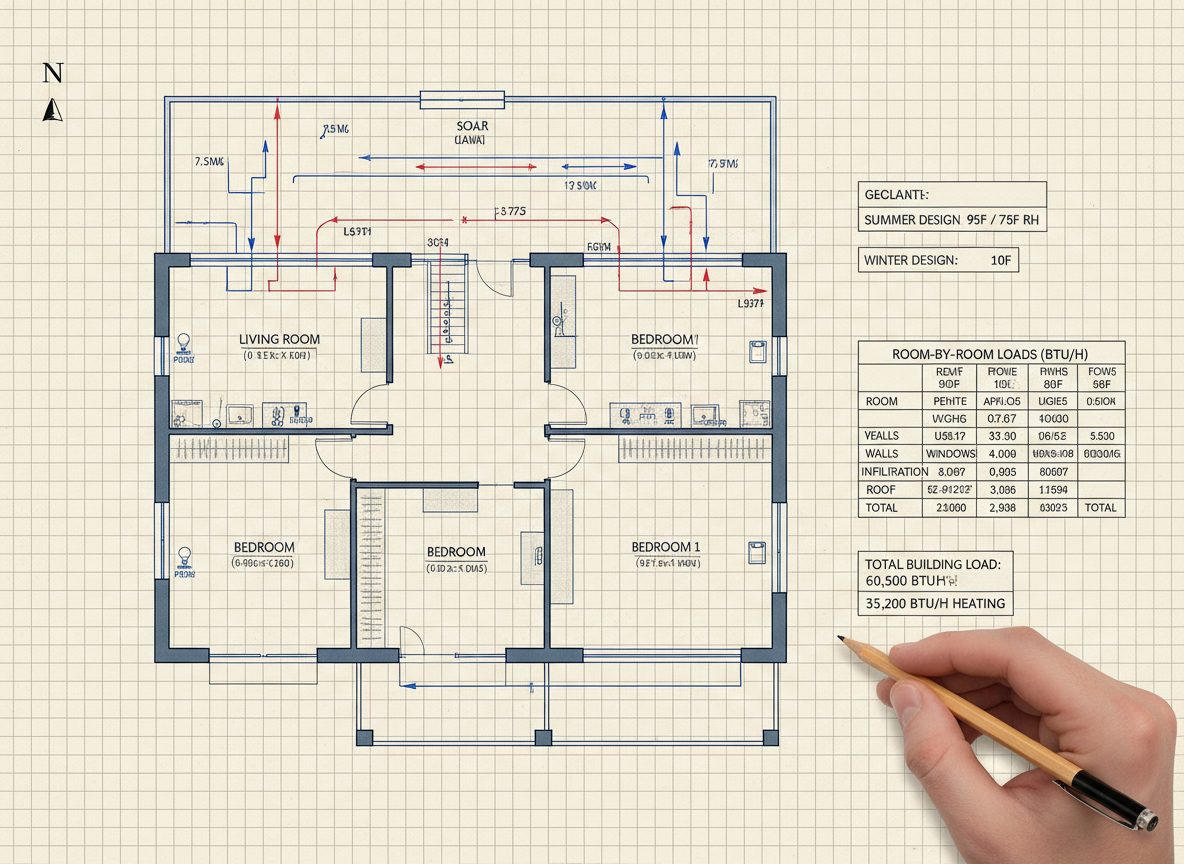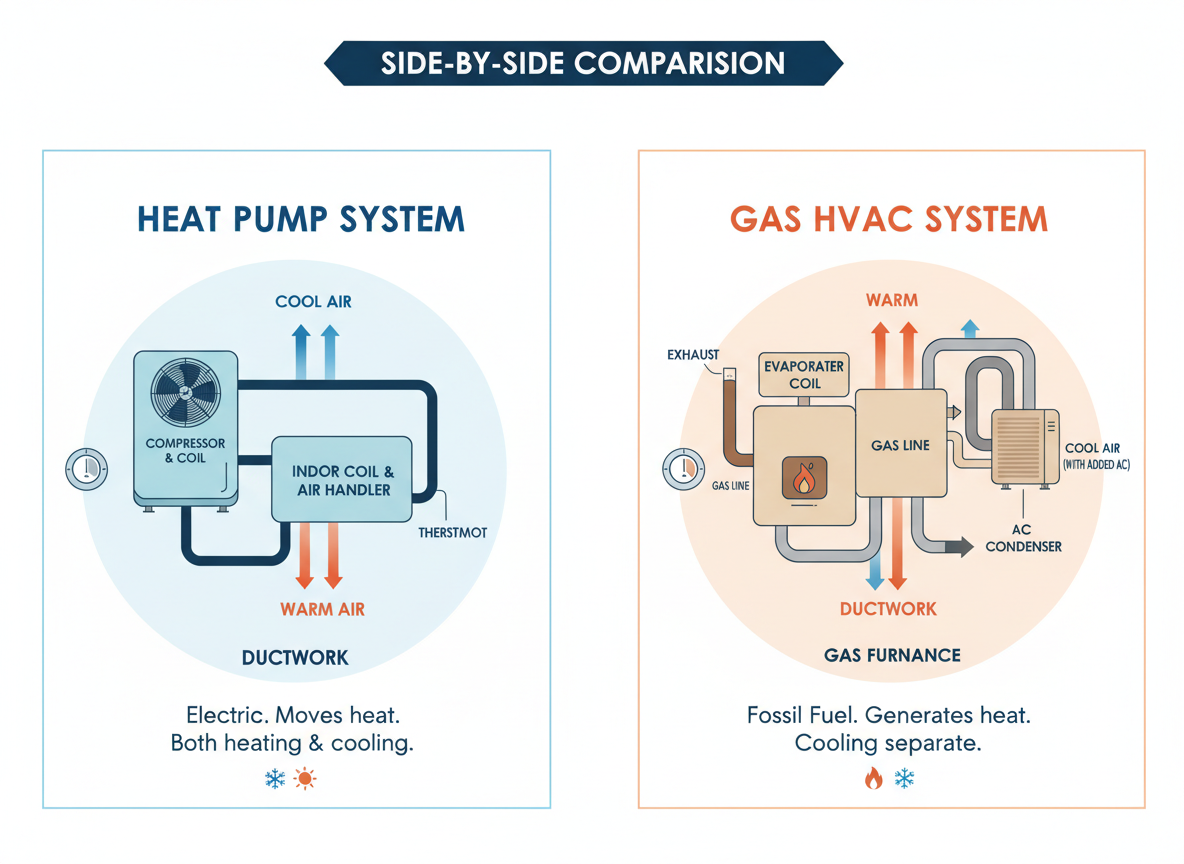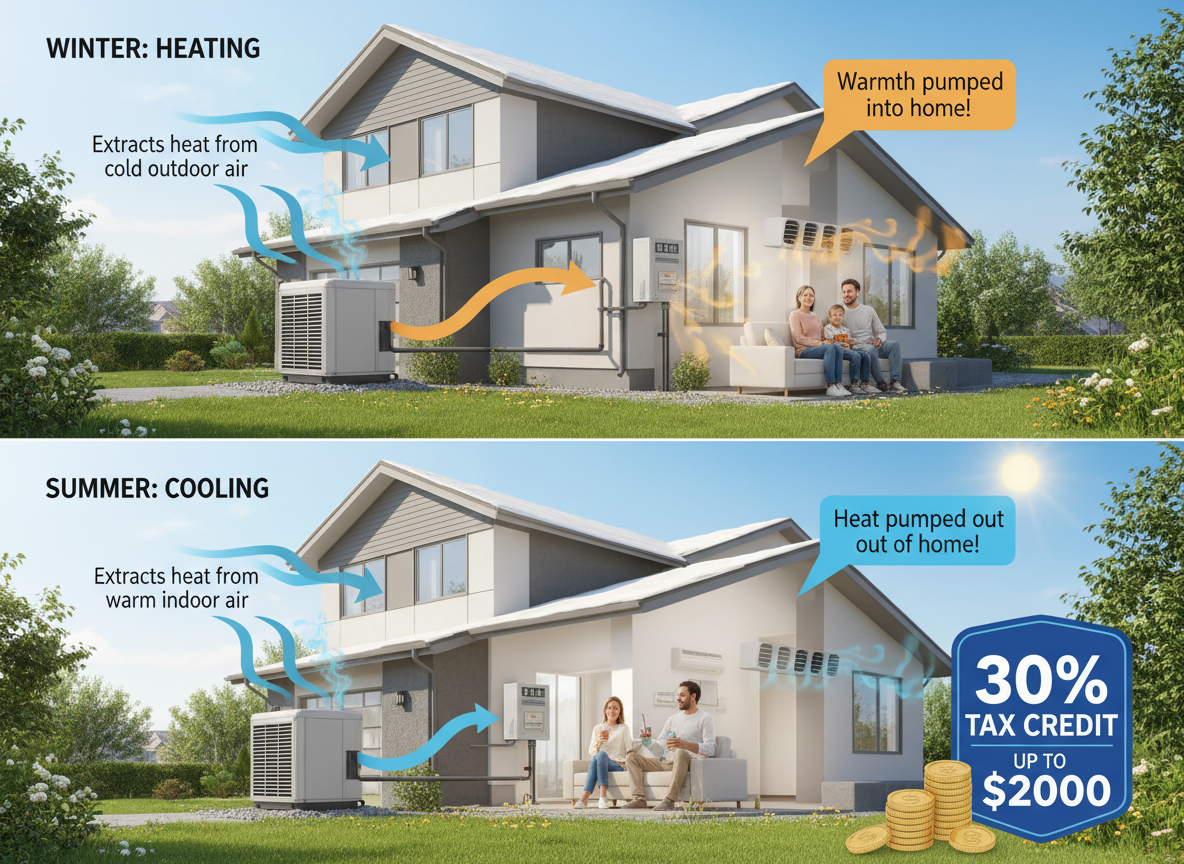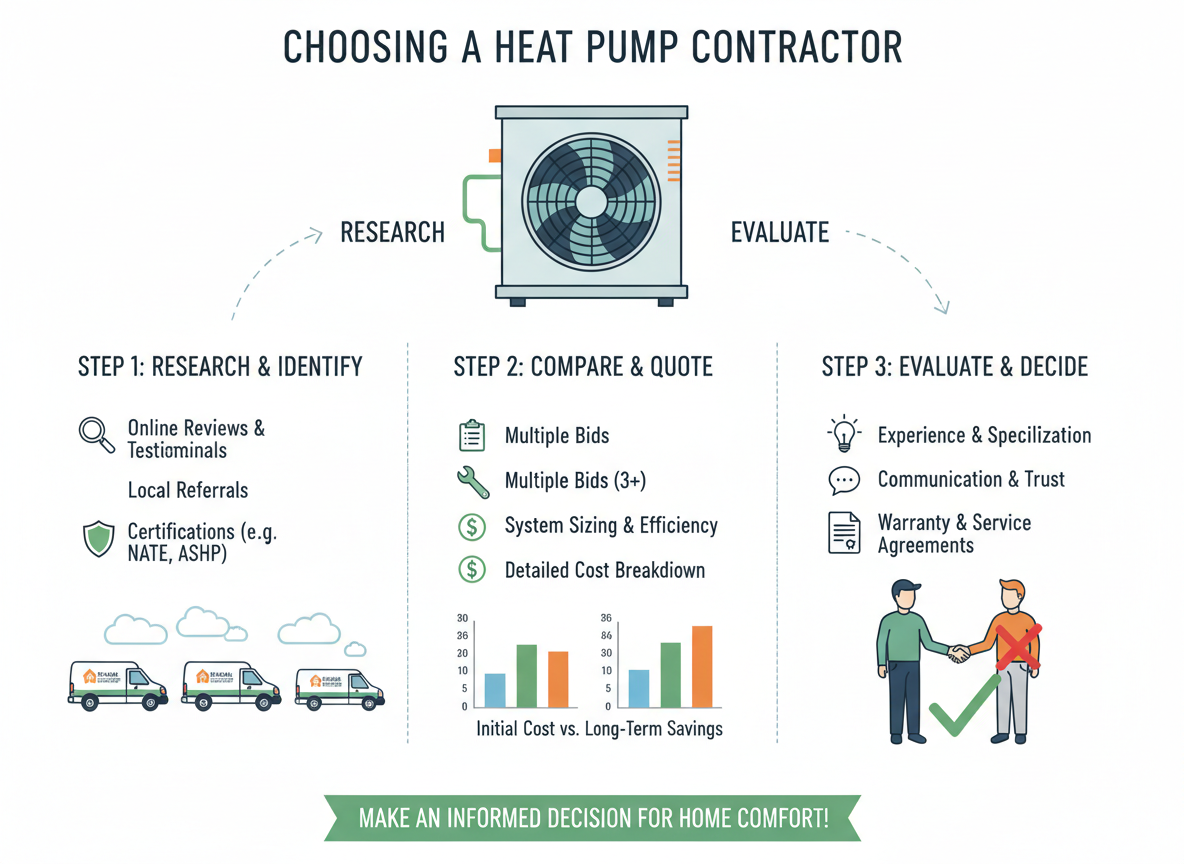
Heat pump system purchases are on the rise, with homeowners who are looking toward more energy-efficient, environmentally friendly options. In 2022 more heat pumps were purchased than gas powered furnaces. Heat pump systems have been an efficient and reliable option for year-round comfort for many years. Despite their popularity there are some common misconceptions about heat pumps that remain. In this article we discuss these myths so you can make an informed decision to see if a heat pump if the right HVAC option for your home.
What is a Heat Pump?
First let us quickly review what a heat pump is. Heat pumps pump heat out of a home when in cooling mode, and pump heat back into the home when in heat mode. They achieve this by using refrigerant to move heat where it needs to go depending on whether it is cooling or heating your home. Since heat pumps are only moving heat from one place to another, they are more energy-efficient and cost-efficient than other HVAC systems.
Heat Pumps Are Noisy
Heat pumps used to be noisy, but modern technology has helped in developing much quieter systems. There is some noise that comes from heat pumps as the funs run, but most may not even notice. If you are concerned about the noise, look into heat pump brands that offer quieter systems. If you get your heat pump properly installed by a professional, there shouldn’t be any issues with excess noise. If you currently have a heat pump that is making a lot of noise it may be because it needs an inspection or maintenance.
Heat Pumps Require More Maintenance
Like with a regular furnace and air conditioning system, heat pumps also need routine annual maintenance. In between professional visits, change your filter at least every 3 months. The key to optimal performance, efficiency and long lifespan is professional annual maintenance.
Heat Pumps Only Work In Well-insulated Homes
Any HVAC system whether gas furnace or heat pump will work better in a well-insulated home. However, a heat pump system that is properly sized for your home can overcome insulation deficiencies. It is also critical that it is installed by a licensed professional for a quality installation.
Heat Pumps Only Provide Heat
Although the name only mentions heat, heat pumps provide both cooling and heating. Heat pumps work by moving heat from one place to another. They gather heat from outdoors and compresses it to increase the temperature of the refrigerant to heat a home. When it is cooling, the system reverses this process and moves the heat from within the home to the outside.
Gas Furnaces Are More Efficient
Although they may be more costly upfront, in the long run heat pumps are more energy efficient and result in greater cost savings than other heating and cooling systems. In general, air source heat pumps can have an efficiency rate of 300 percent, whereas a gas furnace has 98% efficiency.
Heat Pumps Are Not Environmentally Friendly
The main reason heat pumps are increasing in popularity is because they are very environmentally friendly. It is a good alternative to fuel-based HVAC systems if you are looking to reduce your household’s carbon emissions. A heat pump system will always have a positive impact compared to a gas system, because they do not make heat and do not produce CO2 emissions.
Contact LA Heating and Air
Heat pumps are growing in popularity across the United States and will continue to do so as local utility companies and government provides incentives for efficient appliances. As you consider your options it is important to note, that a quality, professional installation is key in achieving optimal performance and efficiency of your new system. Whether you are looking into replacing your system or want to schedule maintenance, give us a call or contact us online we are here to help you!
Heat Pump Myths Related Posts:






















.png)














